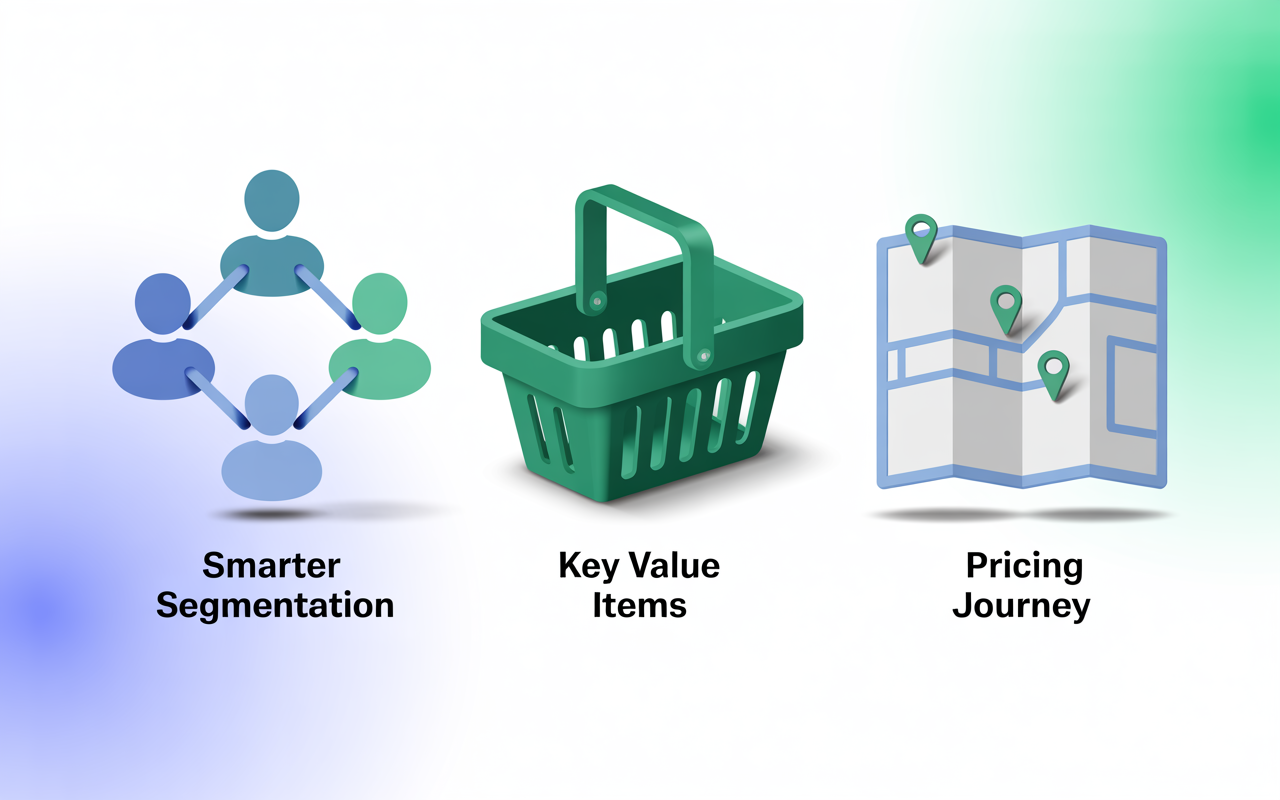
Every B2B manufacturer or distributor wants to grow margins and stay competitive. But in many organisations, pricing is still managed without guardrails. Sales teams negotiate discounts freely, managers approve exceptions on the fly, and product prices shift without a clear structure. At first, this may seem flexible, but in reality, it creates hidden risks that eat away at profitability and customer trust.
One proven way to reduce these risks in B2B pricing is through corridor pricing. By setting clear price floors and ceilings, you give your teams the flexibility they need while ensuring that prices never drift too far outside of acceptable boundaries. Without corridors, B2B companies risk losing profitability, weakening their position in negotiations, and eroding trust with customers..
1. Margin Leakage Through Uncontrolled Discounts
In B2B industries, customers often negotiate hard. Without corridors, sales teams can unintentionally sell products at prices that fall below profitability. A quick discount to close a large B2B deal might look harmless, but across hundreds of contracts or thousands of order lines, these small cuts add up to serious margin leakage.
Corridor pricing ensures that no price is approved below a set minimum threshold, protecting your margins even when negotiations get tough.
2. Price Inconsistencies That Damage Customer Trust
B2B customers expect fairness and transparency in long-term relationships. Without corridors, it’s common for two similar customers to pay very different prices for the same product, simply because different sales reps or regions handled the negotiations.
When customers find out, it doesn’t just cause awkward conversations. It can strain relationships and push them to competitors. Corridor pricing creates consistency across accounts and regions, ensuring prices remain logical and defensible.
3. Missed Opportunities to Capture Value
In B2B, certain products have very few substitutes, while others are critical for your customers’ operations. Without upper boundaries, companies often underprice these products out of fear of losing the deal.
Corridor pricing helps capture this value. By setting an upper limit, you make sure your teams don’t undervalue products where customers are willing to pay more, boosting margins without jeopardising volume.
4. Slow and Fragmented Decision-Making
B2B sales cycles can already be complex, involving multiple stakeholders and long negotiations. Without corridors, every pricing decision often requires manager approval or lengthy back-and-forth. This slows down deals and frustrates both sales teams and customers.
Corridor pricing speeds things up. By defining acceptable price ranges in advance, sales teams can act with confidence in negotiations, while only true exceptions need escalation.
5. Difficulty Scaling B2B Pricing Processes
Manufacturers and distributors often manage thousands of SKUs across multiple regions and channels. Without corridors, scaling pricing becomes chaotic. One region may over-discount, another may overprice, and there’s no consistent way to align strategy.
Corridor pricing introduces structure and discipline that scales with your business. It makes sure your pricing rules are clear, consistent, and enforceable across the organisation.
The Role of Corridor Pricing in Price Maturity
Corridor pricing is more than just a defensive measure. For B2B companies, it is a critical step in the pricing maturity journey. Early-stage companies may rely heavily on cost-plus pricing or ad-hoc adjustments. Corridor pricing adds discipline and ensures that profitability is protected across all negotiations.
As maturity grows, corridor pricing can be combined with more advanced methods like price elasticity modelling, competitor benchmarking, or AI-driven optimisation. It acts as the bridge between basic pricing models and intelligent, data-driven pricing strategies.
How Symson Helps
At Symson, we’ve seen how B2B companies struggle when pricing runs without corridors — and how quickly they regain control once guardrails are in place.
With Symson’s Price Engine, B2B manufacturers and distributors can:
- Set and enforce price floors and ceilings that reflect your pricing rules and margin goals.
- Apply corridor pricing across complex product portfolios, customer groups and sales channels.
- Combine corridor pricing with advanced modules like predictions, elasticity, and competitor pricing.
- Keep flexibility: your sales teams still have room to negotiate, but always within safe boundaries.
Corridor pricing with Symson ensures your B2B pricing isn’t left to chance. Instead, it becomes structured, scalable and aligned with your growth goals, a vital step toward making pricing a true strategic lever in manufacturing and distribution.
Do you want a free demo to try how SYMSON can help your business with margin improvement or pricing management? Do you want to learn more? Schedule a call with a consultant and book a 20 minute brainstorm session!



















.png)
.png)











